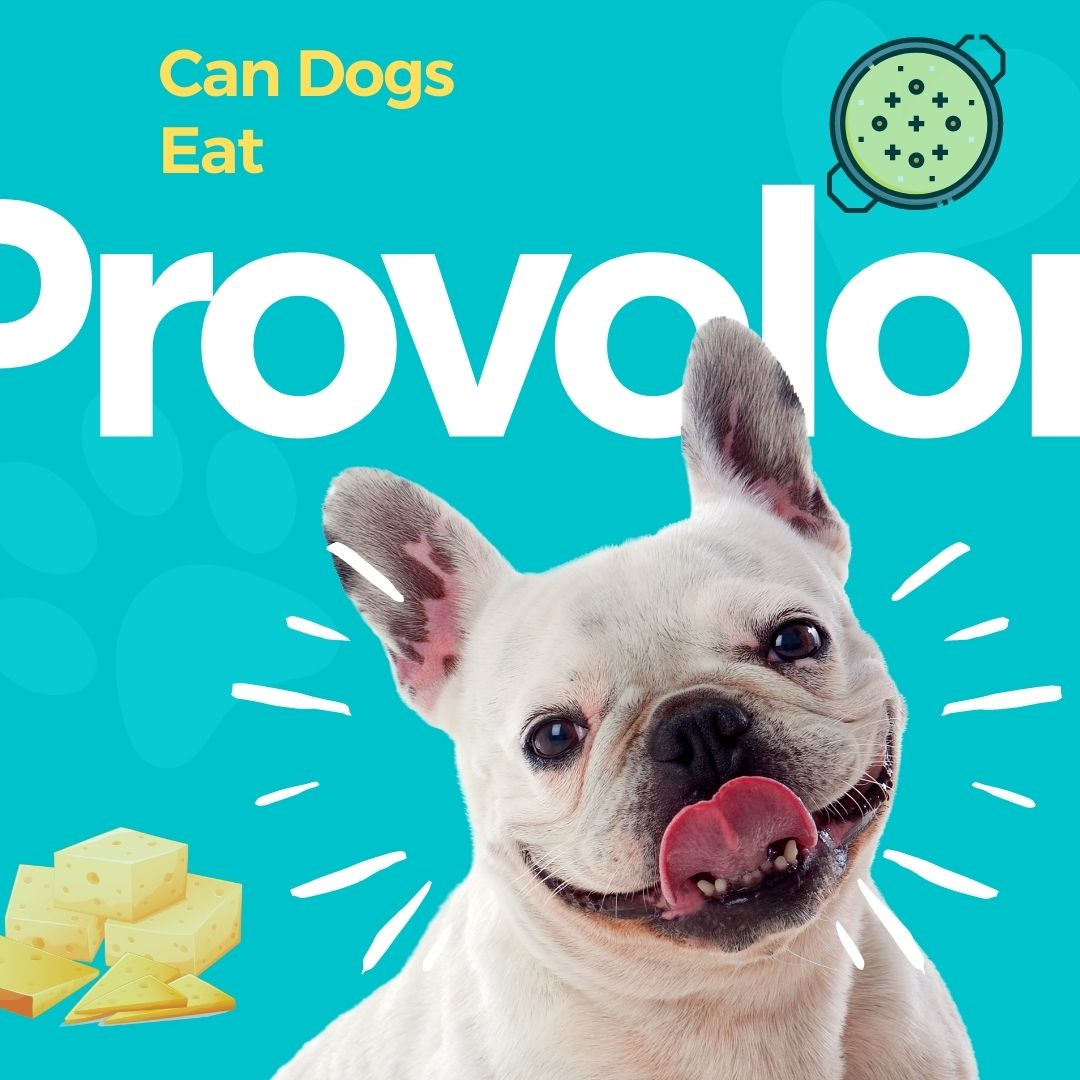Last Updated on June 26, 2023 by Aaron
Disclaimer: This article is for informational purposes only. It’s not a substitute for professional veterinary advice. Always consult with a veterinarian for any concerns about your dog’s diet or health.
As dog owners, we often find ourselves sharing snippets of our meals with our furry friends.
But when it comes to sharing certain foods, like cheese, we may pause and wonder, “Is this safe for my dog to eat?”
One such cheese that often sparks this question is provolone. Known for its smooth texture and mild flavor, provolone cheese is a favorite among many humans, but does it hold the same appeal and safety for our canine companions?
Table of Contents
The Lactose Factor
Cheese, including provolone, is not considered toxic to dogs.
However, the primary concern lies in its lactose content. Many dogs are lactose intolerant, meaning they lack the necessary enzymes, such as lactase, to properly digest dairy products.
This can lead to digestive issues, especially if consumed in large quantities.
Provolone cheese is an aged cheese like cheddar and parmesan — which naturally contains a very low amount of lactose. Being on the lower end of the lactose scale, it may be better tolerated by some dogs compared to other types of cheese.
Caloric and Fat Considerations
Provolone cheese is quite calorie-dense and high in fat, with one slice (1oz) containing up to 98 calories and approximately 6.6 grams of total fat. Of this total fat content, around 4.3 grams are saturated fats.
Fats are an essential part of the diet, providing energy and supporting cell growth among other functions.
For dogs, the amount of fat they should consume depends on their size, age, and health status. Generally, fat should make up between 10% and 15% of a dog’s diet. However, certain breeds and older dogs may require less fat in their diet due to a higher risk of pancreatitis and obesity.
Overindulgence in provolone cheese can lead to health issues in dogs, including high blood pressure and cardiovascular diseases due to its high sodium and fat content.
Let’s Talk About Sodium
Cheese making usually involved salt. Provolone cheese, like many other types of cheese, contains a significant amount of sodium.
On average, a 30-gram serving of provolone cheese contains approximately 263 milligrams of sodium. This amount represents about 11% of the recommended daily allowance (RDA) of sodium, which is set at 2.4 grams per day.
Sodium plays a crucial role in maintaining the body’s fluid balance and is essential for nerve and muscle function. However, excessive sodium intake can lead to high blood pressure and other health problems in both humans and dogs.
For dogs, the sodium requirement depends on their size, age, and health status. The Association of American Feed Control Officials (AAFCO) recommends a minimum daily sodium intake of 0.08% for adult dogs and 0.3% for puppies. However, these are minimum requirements, and the optimal amount may be higher depending on the individual dog’s needs.
It’s important to note that while dogs do need some sodium in their diet, too much can be harmful. High sodium intake can lead to salt poisoning or hypernatremia, which can cause symptoms like vomiting, diarrhea, seizures, and even death in severe cases.
I’d recommend you to go for the low-sodium version of provolone.
Provolone Cheese: A Potential Snack?
Provolone cheese is low in carbohydrates and sugars, making it generally well-tolerated by dogs. However, it’s recommended to test your dog’s tolerance with a small amount first, closely monitoring for any adverse effects.
Some brands of provolone cheese may contain ingredients toxic to dogs, such as garlic, onion, and avocados.
Low-fat provolone cheese options or lactose-free provolone cheese are preferable choices.
However, if your dog has a known allergy to dairy products or has had a bad reaction to milk or dairy products in the past, it’s best to avoid giving them provolone cheese.
Other Cheese Options
Besides provolone, other cheese varieties that are generally well-tolerated by dogs due to their lower lactose content include cheddar, parmesan, pepper jack, and Swiss cheese. Cottage cheese is also a good option as it is high in proteins and has the lowest concentration of fats among cheeses. Try the unsalted version.
However, parmesan is also high in sodium and calories, so it should be given sparingly. Additionally, the added spices from the pepper jack can upset some dogs’ stomachs.

